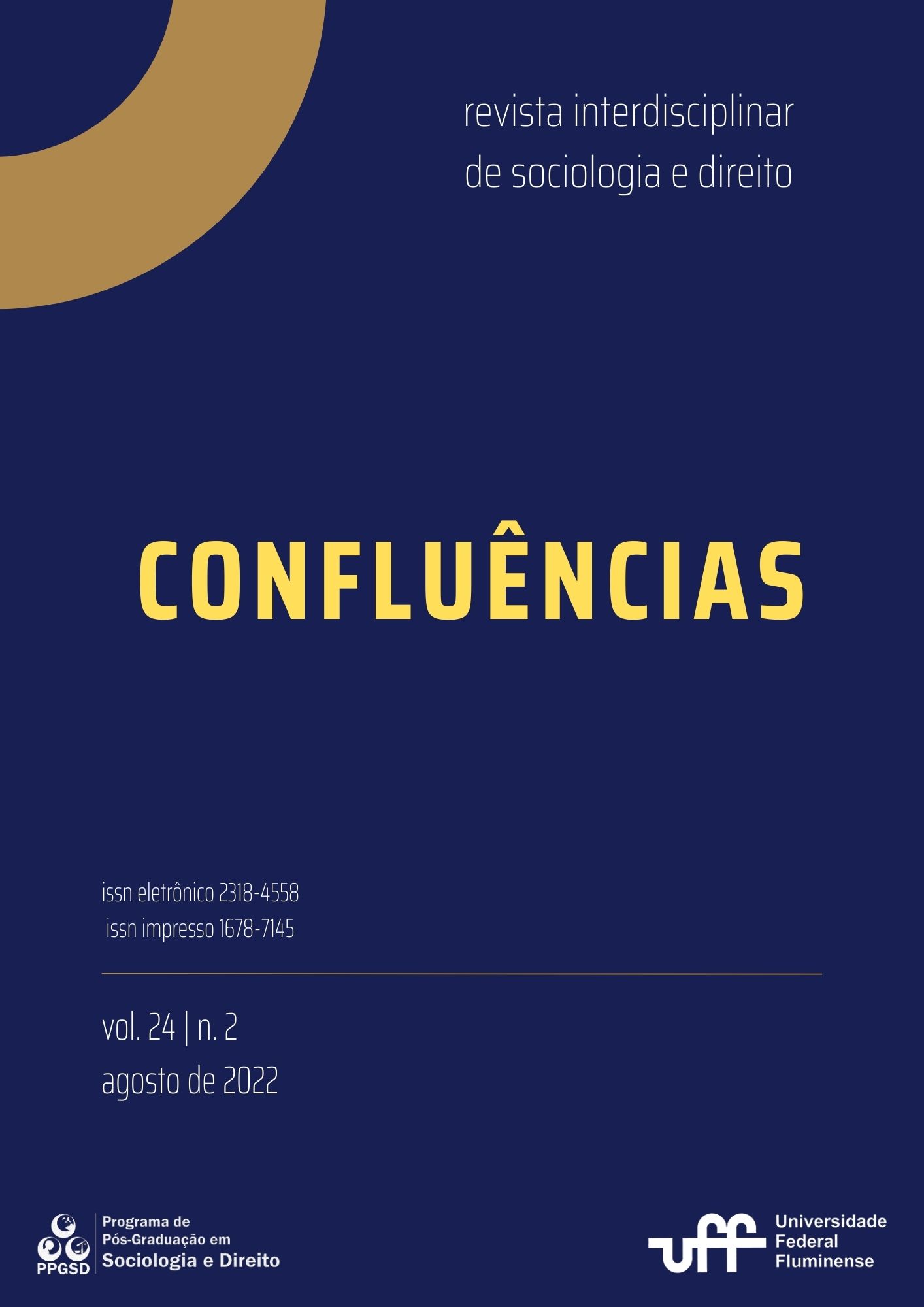AS INTERACTIONS BETWEEN GENDER, RACE AND CLASS IN SYSTEMS OF OPPRESSION
a look from the case of Neusa and Gisele v. Brazil
DOI:
https://doi.org/10.22409/conflu.v24i2.54969Abstract
The article focuses on the case of Neusa dos Santos Nascimento and Gisele Ana Ferreira vs. Brazil as an expression of the system of oppression that falls on black women in Brazilian society. The research problem can be summarized in the following question: how the case Neusa dos Santos Nascimento and Gisele Ana Ferreira vs. Does Brazil reflect the oppressions that fall on racialized, impoverished and sexualized women in Brazilian society? Based on data, it is possible to affirm that the discrimination that Neusa and Gisele went through reflects the reality of black women in Brazil, who are subject to oppression related to race, gender, class and sexuality resulting from coloniality and that make them they are allocated, as a rule, in subordinate positions and, within the scope of work, in precarious jobs since the abolition of slavery. The general objective of the text is, from the aforementioned case, to highlight some of the oppressions that fall on racialized, impoverished and sexualized women in Brazil. The specific objectives, which are reflected in the structure of the text in three sections, are: a) To analyze the case Neusa dos Santos Nascimento and Gisele Ana Ferreira vs. Brazil; b) Study elementary aspects of colonization in Brazil, as well as its permanence through coloniality; and c) Understand the reflexes of the multiple oppressions that fall on black women and the consequences in their working life. It is a qualitative research, whose method of approach is the hypothetical-deductive, through the use of bibliographic and documental research techniques.
Downloads
Downloads
Published
How to Cite
Issue
Section
License
Copyright (c) 2022 Fernanda Lavinia Birck Schubert, Patrick Costa Meneghetti

This work is licensed under a Creative Commons Attribution-NonCommercial 4.0 International License.







